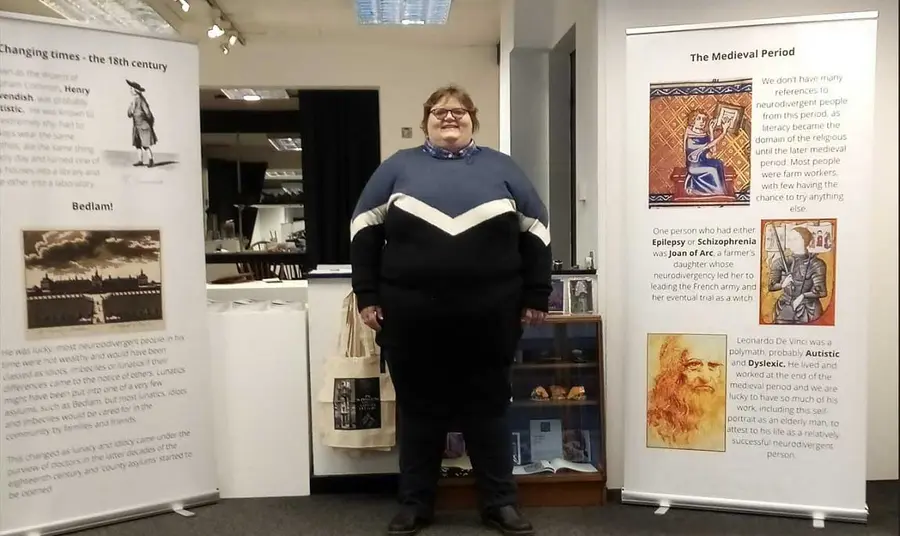
National Lottery Grants for Heritage – £3,000 to £10,000
Faraway CIC Researcher – Rosemarie Cawkwell – spent 12 months reading about many areas of neurodivergence with a focus on autism, ADHD, epilepsy and dyslexia. She also consulted academics from the Narratives of Neurodiversity Network for guidance.
Rosemarie produced:
- Nine roller displays covering neurodiversity history – from genetic evidence in early human history, asylums and early psychiatry, to the growing awareness of neurodiversity today.
- A free 13,000-word booklet on neurodiversity in history. Two versions were made – one dyslexic-friendly.
- Postcards and bookmarks that explain neurodiversity.
The display and conversation particularly impacted an elderly lady who told me about her autistic son and grandson…
Rosemarie Cawkwell, Research Assistant at Faraway CIC
The display travelled around north east Lincolnshire, stopping at libraries, community centres, public events and the Turntable gallery in Grimsby, run by two neurodivergent artists. Rosemarie also produced a small version of the display to have permanently at Neurospace – a workspace that functions as a community centre for the local autistic adult community.
Visitors said they better understood neurodiversity and its history as a result of the project. Rosemarie recalled: “The display and conversation particularly impacted an elderly lady who told me about her autistic son and grandson. I explained that autism is genetic, and she concluded, after more discussion, that she probably had traits but at her age it wasn’t worth pursuing a diagnosis. She also expressed that the information helped make sense of some attitudinal changes that had occurred during lockdown.”
Rosemarie also set up a neurodivergent history website to record everything in the project.